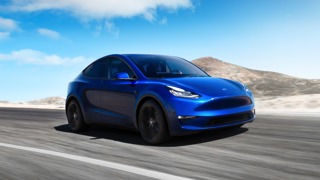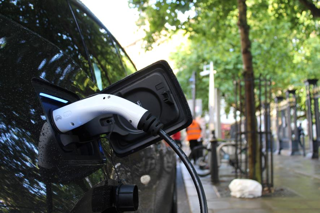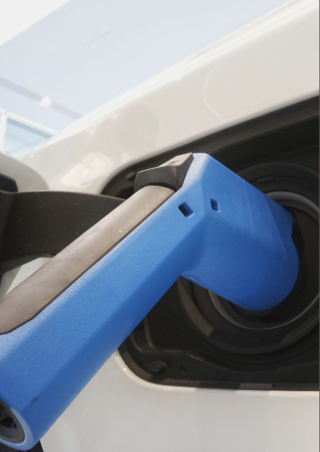Fleets are being overcharged to lease battery electric vehicles (BEVs), with leasing companies too conservative when setting their monthly rentals, new research suggests.
Analysing 2.7 million used car prices in Europe’s biggest markets, including the UK, Transport and Environment (T&E) claims that the residual values (RVs) being assumed by leasing companies are not in line with market data.
The campaign group says this is resulting in a "clear misalignment" between the high monthly rates for BEVs and their actual depreciation in the used car market.
However, UK trade body, the British Vehicle Rental and Leasing Association (BVRLA) has hit back at T&E’s findings, suggesting that they showed “little understanding” of how the market operates.
Toby Poston, BVRLA director of corporate affairs, told Fleet News: “Vehicle leasing companies have led the charge in bringing battery electric vehicles to market. The accusations levelled by T&E show little understanding of how this market operates.
“Like a toddler taking its first steps, the BEV market still needs support in the form of tax incentives, grants and marketing campaigns that give fleets and drivers the encouragement they need to make the leap.
“This support disappears when it comes to selling the same vehicle on the second-hand market. The lease companies that have invested billions in untried, untested BEV technology are navigating this ocean without a map, compass or weather gauge.”
Leasing companies typically charge customers for the expected loss in value of a vehicle over the three-to-four-year lease, so higher lease prices mean they expect BEVs to lose more of their value.
However, T&E claims this is no longer the case in the UK, saying that second-hand prices for BEVs are very strong, with resale values for both older and newer electric models high.
Ralph Palmer, electric fleets lead at T&E UK, said: “Today customers are being overcharged by leasing companies if they want to switch to a battery electric car.
“Leasing firms are too conservative when setting their monthly prices. Their rates reflect the state of play from five years ago.
“With this pricing strategy, their profits are obviously high, and consumers are overpaying to go electric.”
The T&E study suggests that BEVs keep more of their value overtime, reflecting consumer confidence in newer models with improved technology.
Consumer demand for battery electric cars, new and used, is also at an all-time high, it says, further exacerbated by supply constraints.
However, T&E says that leasing companies are not offering the right prices to consumers, labelling their approach to BEV pricing outdated and accusing them of penalising consumers with high monthly deals because they still consider BEVs as new and uncertain products.
Palmer continued: “If leasing companies’ prices reflected the realities of the market, more consumers would have access to affordable new BEVs.”
The BVRLA, however, says that T&E’s analysis does not tally with the reality of a volatile used car market in the UK.
Poston says that leasing companies were able to sell a “limited number” of BEVs into a buoyant market, last year.
“Fast forward six months and they are presenting a surging inventory of electric cars in very different conditions,” he explained. “The current market has seen five consecutive months of falling prices and a growing imbalance between vehicle stock and prospective buyers.”
In January, BCA reported growing price pressure in the used EV market, with some models seeing "significant" corrections throughout the month.
That volatility has been exacerbated by Tesla’s slashing the prices of its Model 3 and Model Y by up to £8,000, in January.
Shortly after the announcement, Cap HPI revealed that used EV values are declining four times faster than their diesel-powered equivalents.
Philip Nothard, insight and strategy director at Cox Automotive, says that Tesla's price cut could not have come at a worse time for the used EV market.
He told Fleet News: “With volumes of used EVs entering the market increasing by a reported 800% at the end of 2022, Tesla’s re-pricing strategy couldn’t have come at a worse time and the ripples have yet to reach the shore.”
Despite these market conditions, Poston says that BVRLA members continue to buy new EVs in record volumes.
“They are absorbing the financial risks of a turbulent used market on behalf of their customers,” he added.
“The leasing sector is already doing its bit and cannot be expected to take unsustainable risks in a bid to underwrite cheaper electric cars.
“T&E’s research would be better focussed on making the case for more Government support on public charging infrastructure and other measures that will benefit the used BEV market.”
> Interested in comparing electric vehicle data? Check out our EV tool.
> Interested in ensuring the efficient use of EVs. Check out our dedicated editorial sections: Insight & policy | EV news | Charging & infrastructure | Costs & incentives | Benefit-in-kind | EV case studies | EV road tests

























JohnMaslen1 - 28/02/2023 23:42
When you aren't the one risking billions to support an emerging market, it is easy to make sweeping statements and demand price cuts. I am sure a leasing company would be more than happy for Transport and Environment (T&E) to put its money where its mouth is and supply funding for electric vehicles - and take the RV risk - at rates it deems acceptable?